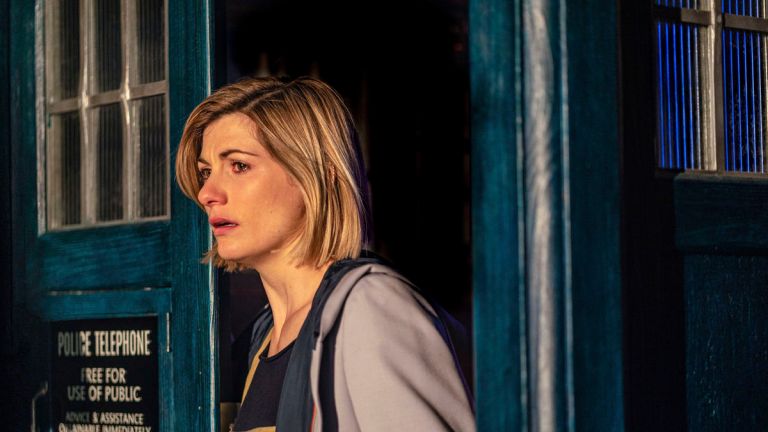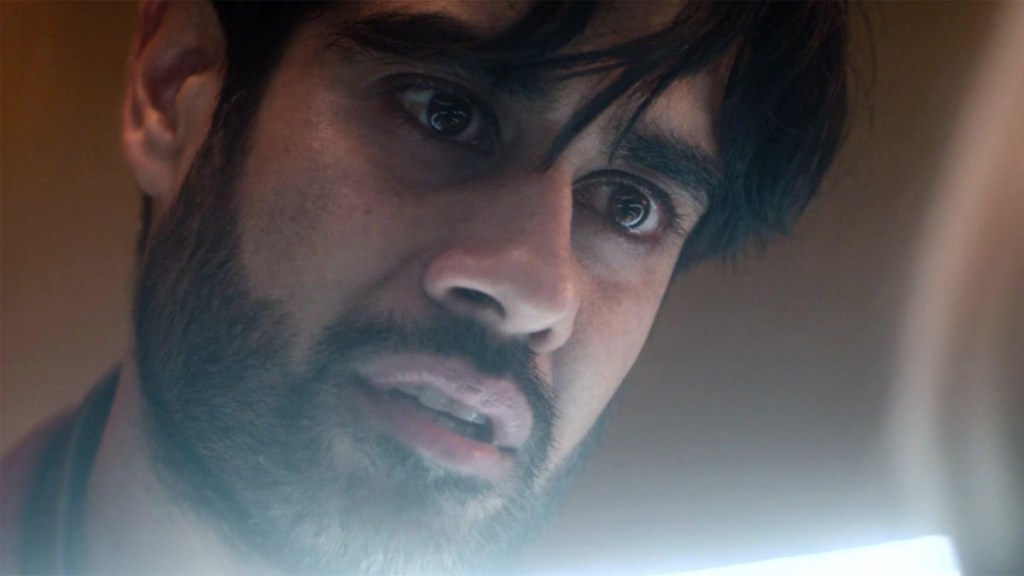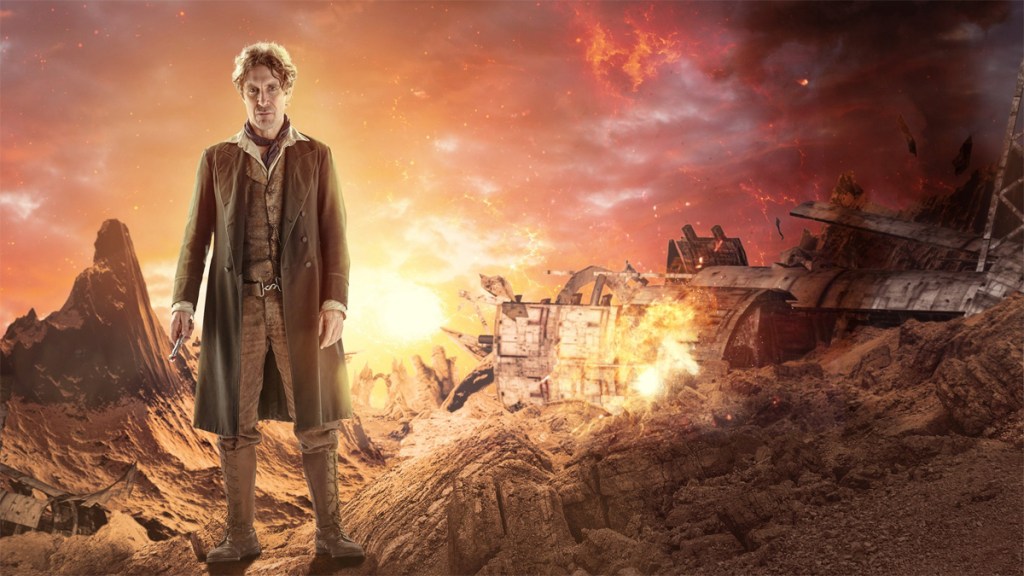Doctor Who: Should Russell T Davies Acknowledge The Timeless Child?
Ignore it, treat it as unalterable fact, twist it? How should the new Doctor Who episodes deal with a controversial part of Chris Chibnall's legacy?

The legacy of Chris Chibnall’s reign as Doctor Who showrunner is a controversial one, and even now it’s unclear how history will judge it. Chibnall brought in a lot of important and necessary steps in the show’s evolution, including the first woman Doctor, the first non-white Doctor, the first non-white writer on the show, and a real attempt to bring back the educational aspect of the series for the first time in decades.
There were also things some fans were sceptical about. For many, the resolution of the giant Flux arc left something to be desired. The destruction of Gallifrey for the second, or possibly even third time, depending on your personal canon. Cybermen with giant frilly Time Lord collars…
But the biggest controversy, without a doubt, has been the story arc known as “The Timeless Child”.
What Is “The Timeless Child”?
For those that need reminding, the Timeless Child was a story arc that revealed the Doctor had a hidden past.
Previously, it was thought the Doctor was a Time Lord on her fifteenth life (thirteenth numbered incarnation, plus John Hurt’s “War Doctor” from the 50th anniversary special, plus a second David Tennant incarnation in the two-parter “The Stolen Earth”/”Journey’s End”), the first of which was played by William Hartnell in 1963.
The “Timeless Child” twist revealed that the Doctor had other lives before Hartnell. These included “the Morbius Doctors”, a series of mysterious faces seen in the story “The Brain of Morbius”, when the Fourth Doctor was having his mind read, revealing images of himself, the Third, Second and First Doctors, and other faces besides. It also included the “Fugitive Doctor”, played by Jo Martin, who travelled in a TARDIS shaped like a Police Box and was on the run from the Time Lords (although we also saw that she performed a few black bag operations for them in the past). It also included an as-yet unnumbered variety of previous identities, many of them children.
It turns out the Doctor is not a Time Lord, but a member of an unknown species, found as a child alone at the edge of a gateway to another universe. The Time Lords learned the art of regeneration from that child, and raised her to be their secret agent, then when she went on the run, they wiped her memory and made her regenerate back into William Hartnell as a child, safe in the assurance that they would never run away again.

Whether it worked or not, the Timeless Child arc was aimed at carrying out several practical functions:
One: It gave the Doctor back some of their air of mystery, once more making her a traveller in time and space with an unknown origin.
Two: It bailed most of the backlog of continuity associated with the Time Lords, who were always a bit of a cumbersome element of the show (although arguably Davies did this perfectly well with the Time War).
Three: Most importantly, it retconned the Doctor so that they were not an old white dude who, for reasons unknown, had suddenly become a woman, but in fact had a long history traversing every gender and ethnicity.
Some fans didn’t like it for precisely that reason – there is definitely a portion of fans who like Doctor Who while remaining wilfully ignorant of all the principles the Doctor stands for. There’s no getting around the fact some people are bigots who think the Doctor is a timeless alien intelligence who for some reason must always be a posh British white dude.
But ignoring those people, some people disliked the twist as an unnecessary hat on a hat. After all, the Doctor is the one who runs – previous attempts to reveal the great mystery of the Doctor’s backstory, like the unrealised “Other” plotline from story editor Andrew Cartmel during the Seventh Doctor’s era, or the “Hybrid” storyline from Steven Moffat, have also fallen by the wayside mainly because, whatever the Doctor’s history is, they always become a much more boring character when they start worrying about it.
The Doctor being a Time Lord has been a part of the character long enough now that it just sort of sticks. It’s one of those things everyone, even non-fans just know about the Doctor, so changing that feels unfair.
So now that Russell T Davies has come back, and fans are eagerly forgetting all the complaints they made about him the first time around, there are people hoping he will simply make it so that never happened.
The Unhappening of the Timeless Child
Chris Chibnall himself has gone on the record as expecting Davies to negate his big twist, saying, “Oh, I fully expect Russell to ignore it!” So could Davies do it? Could he simply wave a hand and say “No, the Doctor’s actually still a Time Lord now”?
It’s not completely far-fetched.
Doctor Who is the longest-running science fiction series in history. Except it’s also not. Even before the show was cancelled in 1989 and reborn in 2005, Doctor Who has always been a succession of different shows, with their own aesthetics, values and storytelling interests, and even, to a certain extent, their own continuity. The First Doctor William Hartnell’s “taking school teachers through time and space to learn about history and science” show is not the same beast as the Second Doctor Patrick Troughton’s bug-eyed-monster-of-the-week series, and both are wildly different from the Third Doctor Jon Pertwee’s Bond-esque adventures.
As Chibnall told radiotimes.com, “You’re not carrying a vase across a room – you’ve got to get in there and say what you want about the show, the character and the world,” adding, “It’s one of the few drama series without a written bible, and every era contains a contradiction or left-turn from what has come before. Any future showrunner will ignore it or run with it.”
For starters, this wouldn’t even be the first time Russell T Davies, personally, has disregarded an unpopular pronouncement about the Doctor’s species.

Between the Classic series cancellation and Davies bringing Doctor Who back, there was the ill-fated Doctor Who: The Movie, starring Paul McGann, which announced that the Doctor was half human (on his mother’s side). Davies happily ignored this from the outset, making several references that contradicted that plot point out of existence even as Paul McGann was preserved as a legitimate incarnation of the Doctor.
Just as with the “half-human” twist, Davies doesn’t have to walk into the office on Day One and announce ‘Bollocks to the Timeless Child’. With the 60th anniversary underway, Donna Noble returning and the Fourteenth Doctor suddenly looking like David Tennant again, the Doctor is going to be busy from the outset, and it’ll be no surprise if it’s a while before the Doctor even has time to think about his origins.
Maybe halfway into Ncuti Gatwa’s first season, he can introduce himself as a Time Lord and a certain segment of fans can breathe a sigh of relief while another segment can start angrily tweeting about it (assuming we still have Twitter by then). And even then, he can still be a “Time Lord” by adoption, allowing those fans who enjoyed the twist to preserve their headcanon without it interfering with the plot of the show.
But all of this is making a very big assumption, a whopping huge one to be honest, and that is that Russell T Davies agrees with that loud subsection of fans. And if there is one thing you should know as a Doctor Who fan of any stripe, it is that you should not trust Davies to agree with you on anything.
What If RTD Leans Into It?
There is, all around, a kind of general assumption that Russell T Davies will mostly ignore any dangling threads from the Chibnall era to focus on his own story ideas. As said, Doctor Who is a succession of different shows, and a new showrunner normally marks one of those historic cut-off points.
But Russell T Davies’s priorities have always been to tell the story he wants to tell, and (with Doctor Who especially) to appeal to as wide an audience as possible. ‘What Fans want’ appears to be a distant third on his list, and even then that is assuming that ‘fans’ is some sort of monolith block of opinion rather than an ongoing, many-splintered argument where any two people will hold three contradictory opinions between them.
Indeed, on the record Davies has very much supported Chibnall’s big twist, writing in his preamble to the publication of his “Doctor Who and the Time War” chapter during lockdown, “But now, the Thirteenth Doctor has shown us Doctors galore, with infinite possibilities.”
So the question is, can Davies use the Timeless Child?

One of the few bits of dialogue we’ve got from the trailers for the 60th anniversary specials is the Doctor saying “I don’t know who I am anymore”. Now of course, that could refer to any one of a million different things, including, it being the Doctor or actual amnesia. But you wouldn’t be crazy for thinking it refers to the Timeless Child twist.
Maybe the Doctor has ideas about where the Timeless Child actually came from, and who their people were. Maybe he has some brilliant ideas about what those hidden incarnations of the Doctor got up to before Hartnell. Maybe he even knows why the TARDIS was a police box long before it turned up in Totter’s Lane Scrapyard in “The Timeless Child”.
It certainly seems unlike the Davies we have known before, who wanted a Doctor who was always moving forward, and who kept his fannish speculations to himself while making sure the series skipped continuity questions in favour of what is happening right now. But Davies has been gone a long time during which he’s evolved and grown as a storyteller, and also is no longer trying to make the argument that Doctor Who can be mainstream and successful when so many shows (Loki, Timeless, Legends of Tomorrow) have not just tried to mimic Doctor Who but mimic his version of Doctor Who.
So, what should he do? Personally, I’m the worst sort of fan. Despite everything I know about Doctor Who in particular and storytelling in general, I still cling to the fantasy that the show is one long story where all the pieces fit together in a way that sort of makes sense if you squint – it is one long game of consequences.
And part of that is that anything that happens stays happened (apart from the half-human bit because we all agree that’s rubbish). So, like or loathe the Timeless Child, it’s not Russell T Davies’s job to “fix” that plot element, only to push on forward with the story to tell us what happens next.
Doctor Who returns to BBC One, BBC iPlayer and Disney+ in November.
